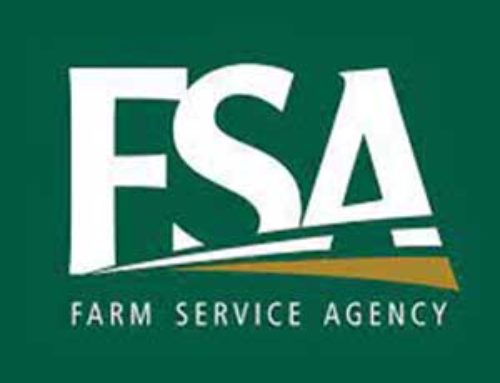
Vicky Scharlau
As we bring in the new year, it only seems right to reflect on the progress we have made.
Last year, 2017 ushered in a new level of industry engagement, resulting in our voice being heard. Of course, there is still much work to do, but we need to give accolades where they are due.
Let’s raise a glass to all the work the industry has done this past year to implement a legitimate, inclusive and intentional process for advocacy!
Unity is a large part of this success. The Washington Winegrowers (formerly the Washington Association of Wine Grape Growers) rebranded in 2017 to be more mission-driven and a unifying industry voice for both growers and vintners.
Partnering with the Washington Wine Institute, Winegrowers has had two successful issues caucuses that provided informative briefs on a range of priority issues identified by industry members.
These events featured not only our own lobbyists in Olympia, but also representatives from WineAmerica, Winegrape Growers of America, and the National Grape & Wine Initiative.
Of particular note, the 2017 Issues Caucus featured keynote speaker former Attorney General Rob McKenna, who emphasized the importance of engaging in government affairs. He commended attendees for their presence and encouraged every opportunity to influence the issues that impact the industry. Advocacy thrives on unity, one industry voice that meets grower and vintner needs.
Still, as I noted in a previous article in Good Fruit Grower (November 2016, http://bit.ly/2lRqeFO), advocacy is slow, incremental and happens over time, and now that we have an established advocacy process, the steps to identifying and prioritizing issues are next.
That’s where we are now.
Aren’t all issues important? Maybe, but prioritizing and identifying the industry’s specific role will allow for greater efficiency, clarity and intentionality.
It’s natural to want to voice an opinion and advocate on all the issues facing our industry, but it is very important for us to be selective and thoughtful, as we are far more likely to succeed and steward resources.
We frequently have to assess the changing political environment and be sure that the issues we prioritize are clearly linked to our mission and industry focus. Timing and authority are crucial.
During the past several months, our industry-member Government Affairs Committee has been doing just this, by running an industry-informed issues list through the following questions:
—Does it have a financial impact on or to grape and wine industry business?
—Is it an impediment to grape and wine industry business?
—Does it impact the grape and wine industry reputation?
—Does it solely impact the grape and wine industry? (If not us, who?)
—Will the voice of the grape and wine industry on the issue make a difference?
—Does the issue hurt or build grape and wine industry credibility?
Among the priority issues on the 2018 legislative agenda for both growers and vintners are the Farm Bill, federal agriculture appropriations, the Food Safety Modernization Act (FSMA), federal trade such as the North American Free Trade Agreement (NAFTA), smoke taint, the Washington state Winery Wastewater Treatment permit, and paid sick and family leave.
The last Farm Bill was passed in 2014.
Many of the Farm Bill provisions that are important to the industry, such as the Animal and Plant Health Inspection Service (APHIS), National Clean Plant Network (NCPN), the Agricultural Research Service, and the Market Access Program (MAP) will expire in September 2018. Continued advocacy, working with other agricultural groups, is vital to ensure that Congress hears our voice regarding the need for continuing and expanding these programs.
Winegrowers partnered with other industry groups to influence Congress to include the Craft Beverage Modernization and Tax Reform Act (CBMTRA), which provides the first reduction in wine excise taxes in over 80 years, as part of the Tax Reform Act. These excise tax reductions end on Dec. 31, 2019, so it is vital to advocate for continuing these tax deductions beyond 2019.
FSMA will require that growers comply with the Food and Drug Administration’s (FDA) Produce Safety Rules beginning with the 2018 harvest.
These new rules will create extensive and costly paperwork, record-keeping requirements and mandatory trainings for both growers and wine producers.
In partnership with other industry groups, we are continuing to urge Congress and the FDA to add wine grapes to the list of commodities that are exempted from the Produce Safety Rule requirements.
The new, voter-approved Washington state paid sick leave and paid family leave programs are both now in effect as of Jan. 1. Major changes under the paid sick leave include: increase to minimum wage over the next several years and accrual of paid sick leave at a minimum rate of one hour of paid sick leave for every 40 hours worked, for full-time, part-time and seasonal workers.
Winegrowers is continuing to monitor the development of the new Winery Wastewater General Permit, which is expected to be released in summer 2018.
In addition, Winegrowers continues to facilitate the Northwest Foundation Block Advisory Group (FBAG) to provide an industry voice in advising Washington State University about the industry needs for clean plants.
So, one can easily see, there is much progress, but much to do. But optimism and passion fused with intuition, connection, intentional thought and analysis, and mobilization affords much.
Contrary to popular opinion, advocacy is not political jargon or a cliché, nor is it a waste of time. Coupled with education, advocacy catalyzes change and informs forward-thinking policy. But, if we are to succeed, it will be up to every one of us to continue or start making our voice heard.
The issues may seem difficult to tackle, especially in such a polarized political arena as we operate in today, but we have a process in place. It may not be second-nature for all to speak up, but it makes for a great New Year’s resolution: Make your voice heard and continue to weigh in on the issues most important to your industry and your livelihood.
A little encouragement from best-selling author and former dot-com business executive, Seth Godin: “If it scares you, it might be a good thing to try.”
Cheers to 2018! •
Vicky Scharlau is executive director of Washington Winegrowers.






Grapes going in to wine have no food safety issues so produce rules are for produce, not wine grapes or other materials going in to any alcoholic beverage. The FSMA exemptions for alcoholic beverage producers apparently had some aspects overlooked as many are now subject to the food based GMP’s (Government Manufacturing Practices- government replacing good as there is not much good about them). Wine outright kills human pathogens and they are not sustainable in beer either and there is no real history of food safety issues in alcoholic beverages in the US. Also, already regulated for production by the Federal and state liquor agencies for production. It is duplicate unnecessary superfluous regulation of an industry.